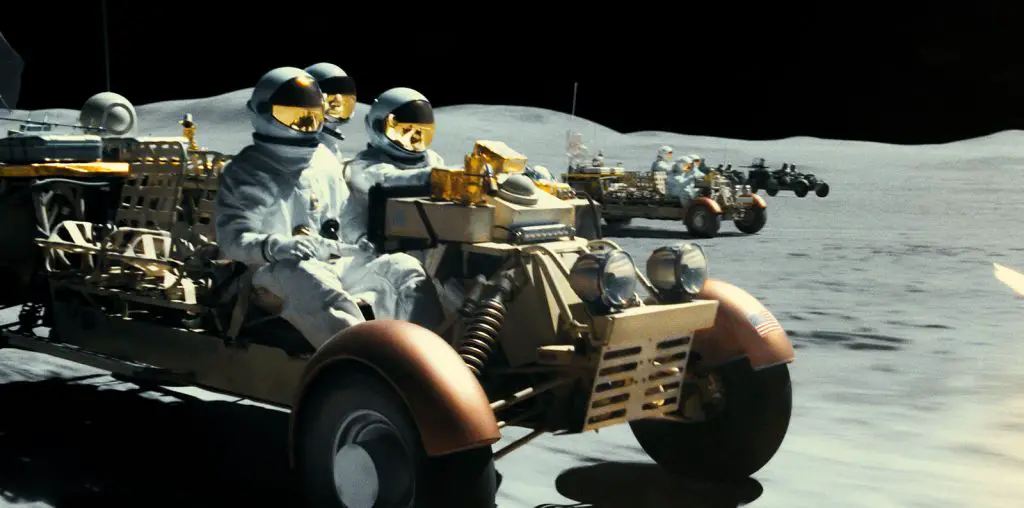
2001 had the bravery to show the true incomprehensibility of encounters with alien intelligence, and the knowledge to ground things in reality to buy enough credibility to sell a huge, fantastic leap at the end. Ad Astra, in contrast, just strings together set pieces with no real meaning. Yes, it is cool to see space pirates and space monkeys attack our hero, but do they have any meaning whatsoever to his journey or his character? And yet, neither is Ad Astra a true space adventure, as it keeps returning to long stretches of Brad Pitt brooding with existential angst and daddy issues. It is kabuki theater intellectualism, borrowing the grand backdrop of the universe and the gravitas of the space program, all the while treating the underpinnings of those endeavors with such disdain that they get the fundamentals completely backward.
Many people are saying that it is 2001 meets Apocalypse Now, and even director James Gray is now going around saying that. He previously admitted though that wasn’t his intention.

“It turns out the solar system is a pretty dangerous place, filled with pirates, dangerous animals, gun-toting humans, and psychological trials.”
Yes, there’s a quest for a supposedly great man who may or may not be crazy, but the similarities end there. Is Ad Astra exposing the folly of getting into a proxy war with a superpower at the expense of the whole country? The madness of warfare? Ad Astra is just screaming for a Dennis Hopper to come in and crazy up the third act, but sadly, he never arrives. Yes, Natasha Lyonne makes a cameo welcoming Brad Pitt to Mars, but like everything else in Ad Astra, her genius is stifled as if an offscreen black hole has sucked all the fun out of the universe.
Ad Astra borrows more from Contact. An explorer goes in search of extraterrestrial life but finds their father instead. But here again, Ad Astra comes up short in comparison. Contact was full of grand ideas, based on real science, and Ellie’s struggles supported larger themes. Ad Astra is the anti-Contact — meaningless struggles, pretend science, and confused, small ideas.


I found the premise that the anti-matter beams were focused on earth ridiculous. If this was really a problem, wouldn’t TLJones have self-destructed or at least sent a warning to earth about the problem. If the anti-matter was the propulsion system of the Neptune mission, wouldn’t TLJones try to continue the mission to the stars after he killed the rest of the crew? This doesn’t seem to be in the plot. The data that is passed on to Brad Pitt seems very brief and inconclusive: Images of planets are not enough- what about traces of life, even microbial? What about a human compatible planet? Are they only looking for intelligent life, instead of ANY extraterrestrial life? Here’s a better ending: the destruction of the Neptune ship causes a mini-black hole or space-worm that sucks Brad Pitt outward at near light speed. Thus, he becomes the real star explorer and will try to reach the next planet, though probably to never return. This was sort of the ending of Mission to Mars, where Gary Sinese decides to ride the free trip to the alien destination, rather than return to earth. Don’t know if the science was any good on that film, but I found it much more satisfying. Remember the madness of the remaining astronaut on Mars who was surviving on growing plants (Don Cheadle)? That was a great scene which showed the fragility of human nature on another planet.